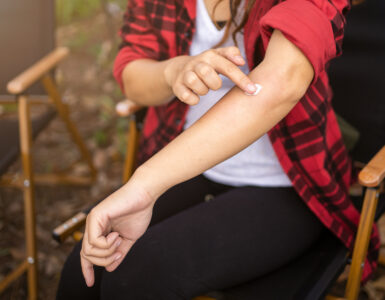Brent Wilson, M.D., Ph.D. Cardiovascular Clinic
University of Utah Health Care
The human body is well adapted to warm weather because it has its own built in air-conditioning system. When summer temperatures increase, our body naturally cools itself by pumping up the heart and sweating. However, the body can over exert itself delivering blood and oxygen to the heart with excessive work. This can eventually lead to a heart attack.
Ways to Prevent Over Exertion
· The body needs plenty of water to keep up with your summer activities. Drink 6-8 glasses of water a day to help the natural cooling system and maintain your body functions.
· Schedule any excessive work or exercise when the heat is at its lowest. The best times for high-energy activities are early mornings and late evenings.
· Give your heart extra support by eating heart healthy foods to help with minerals and nutrients that may have been lost.
· Certain medications may cause side effects with the sun and high temperatures. A pharmacist or physician can tell you how your medications interact with the heat and sun.
· It is important to rest in cool shady areas on scorching summer days. If you get too hot, cool down by standing next to the air conditioning, by taking a cold shower, or by drinking cool water.
Warning Signs of a Heart Attack
· Heaviness, pain, pressure or discomfort in the chest, arm or below the breastbone
· Discomfort in the back, arm, throat and jaw
· Feeling extremely weak, high anxiety or shortness of breath
· Rapid or irregular heartbeats
· Nausea, vomiting, sweating or dizziness
· Indigestion or a choking feeling almost like heartburn
Tips on Travel
· If you have a heart condition, talk to your provider before going on vacation to make sure you are healthy enough to travel.
· Go over activities you will participate in to make sure they are not too strenuous for your condition.
· Pack all needed medications in carry-on luggage.
To contact the University of Utah Cardiology Center, call 801-585-7676















Add comment